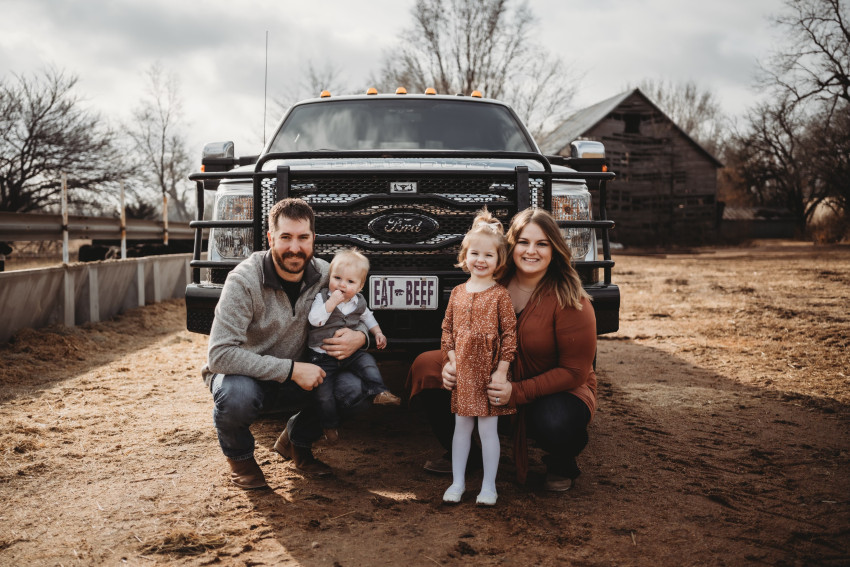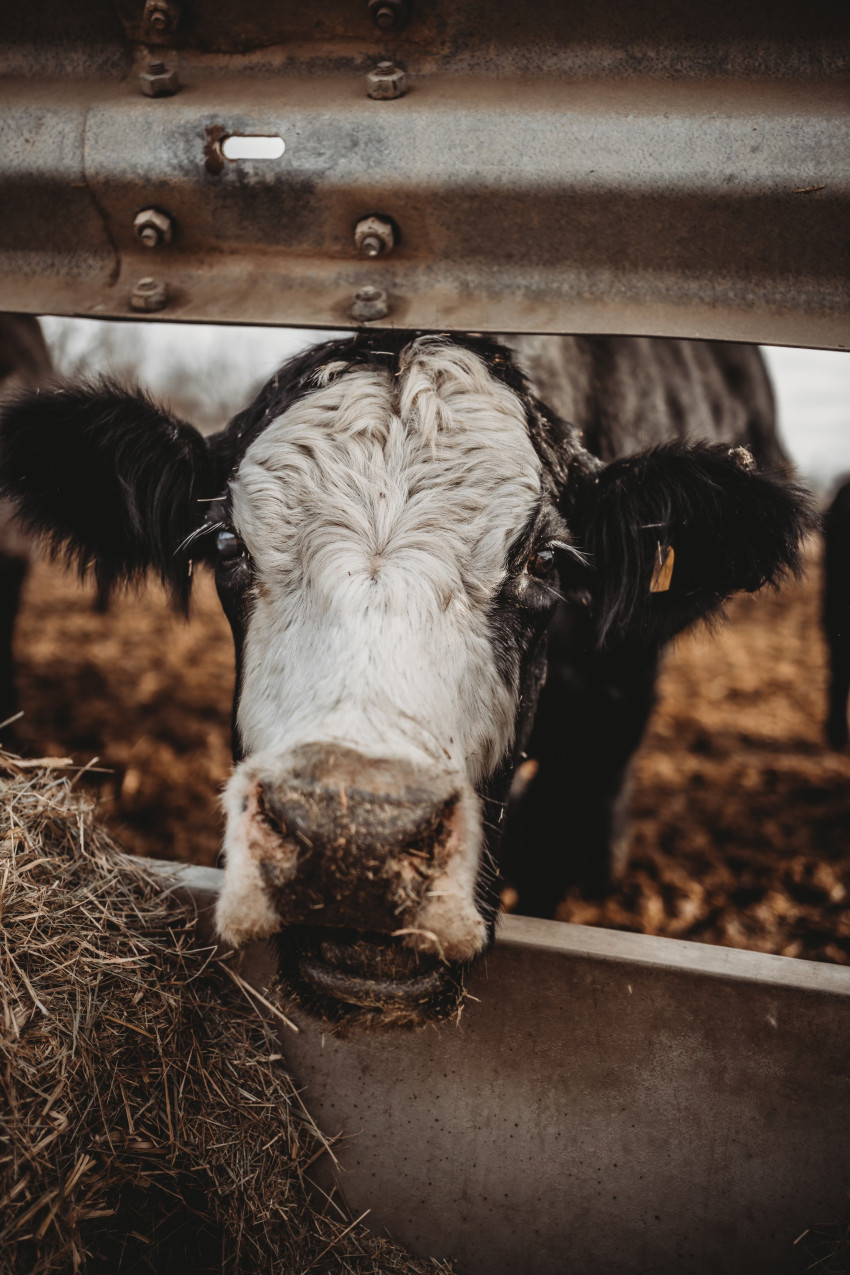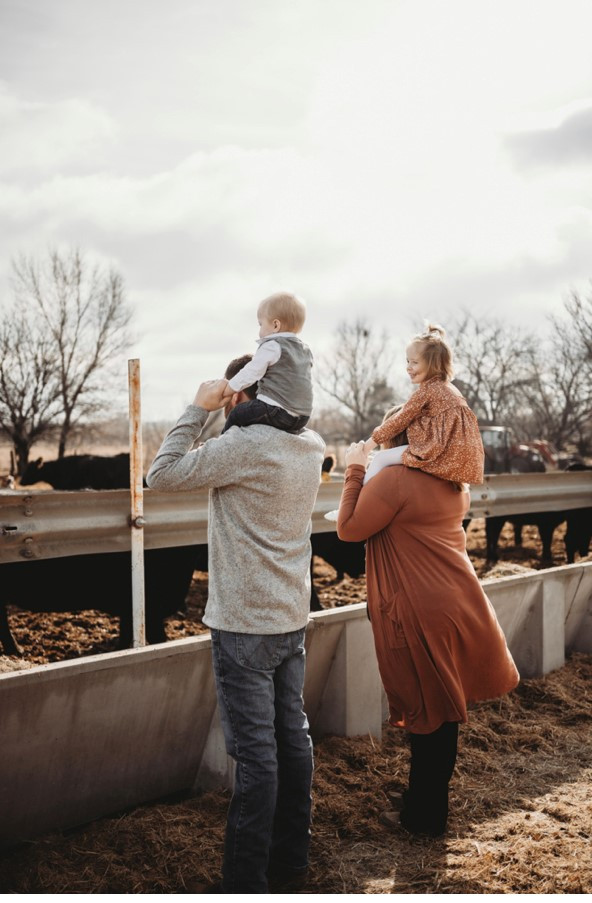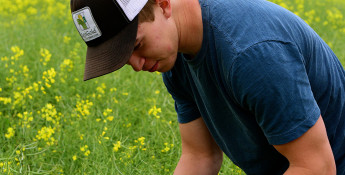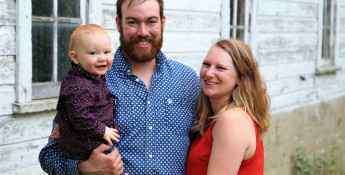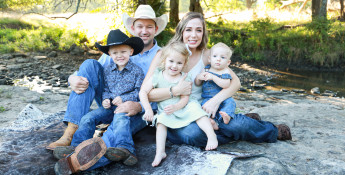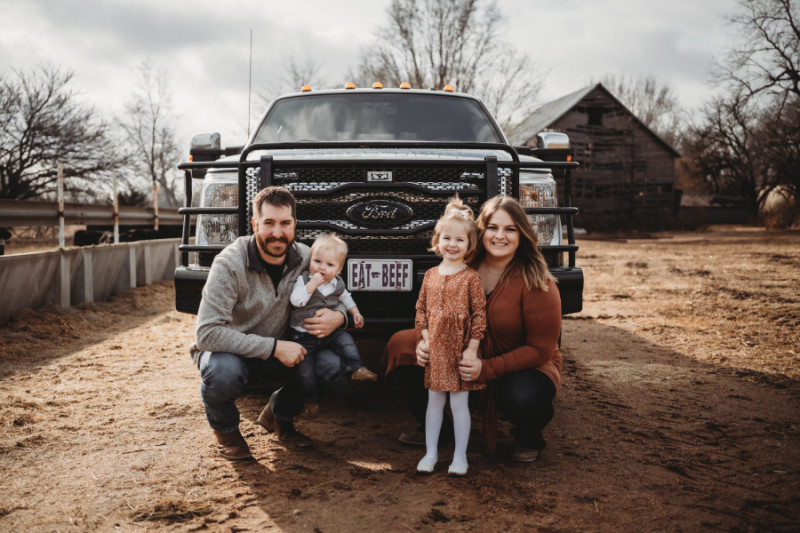By Kansas Living on November 2, 2023
Meet the Speer Ranch Family
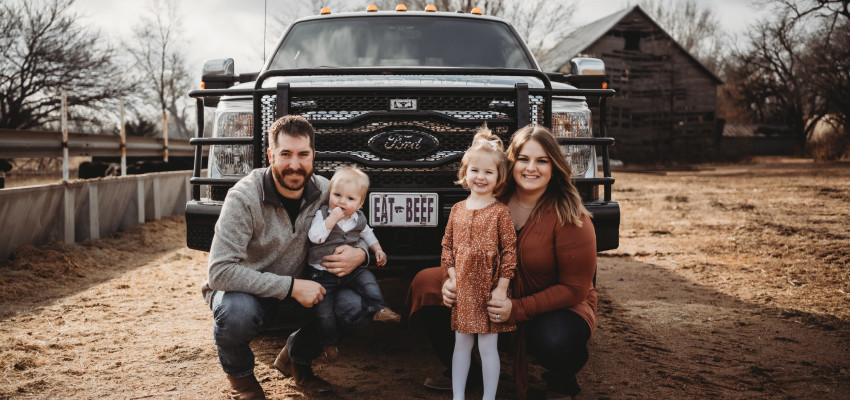
Michael and Amber Speer are ranchers in Kansas who love what they do and hope to pass their legacy on to their children. Learn more about his ranch family.
Amber and I are fifth-generation farmers in Clearwater. Our farm is a diversified no-till operation that includes wheat, corn, soybeans, cotton, milo and hay. We also have a cow-calf herd. We have two children, Ellie and Weston.
What three things matter the most to you as a rancher?
1. Animal welfare
I want to take the best care possible of my animals. When people see my animals, they often mention how gentle and calm my cattle are. Having gentle cattle makes life much easier as a rancher because it’s safer for me and my family when we work them.
2. Good genetics
It’s important for me to maintain a high standard in the calves I produce and sell to buyers. When calves gain weight efficiently and stay healthy, I know I’ve got a good line of genetics
3. Impactful feed rations and a grazing plan to maximize our grass
We have started working rotational grazing into cattle grazing where pastures allow so we aren’t overgrazing and taking important high-quality nutrients from the soil. A rotational grazing plan is beneficial for both our pasture health and our cattle health.
What does sustainability mean to you?
When we think about sustainability, we think about doing what we can the best we can. No matter what we do, it needs to be the best decision for our animals, for our soil and ultimately, when those things are doing well, it’ll be advantageous for our bottom line, too. As farmers and ranchers, our goal is to leave the land and environment in a better place than when we took it over.
What does a typical day/week/month look like on your ranch?
It really depends on the season. During the winter, we’re feeding cattle and working on equipment and fertilizer applications. From March through October, we call that “complete chaos.” There are a lot of early mornings and late nights, but we try to take as many Sundays as possible to slow down and spend time with family.
What is your family's favorite protein?
Our family loves grilled steak. Even with two small kids, Sunday night steak night is our family’s favorite meal of the week.
What is one thing you wish consumers knew about your operation?
We love our animals like our children. We have invested a lot of time and resources into them (both our kids and our animals) and will only treat them the best. Also, consumers should know how much we care for our soil. It’s the lifeblood of what we do, and caring for it is the focus of everything.
Where do you see the future of your operation going?
For us, innovation is important on our operation. Of course, we want to continue our farm to the sixth generation – and to do that, we must innovate to apply new technologies beneficial to positive, sustainable growth.
What is the hardest and best part of your job as a rancher?
The hardest part is when we lose an animal. We work hard to bring our animals to life and give them the best care because at the end of the day, they’re also taking care of us. When we lose an animal, it’s a hard thing to handle — both emotionally and financially.
The best part, though, is the other side of that — when we get to bring life into the world. There’s nothing like a new baby calf standing on their own for the first time and seeing them grow up healthy.
What does a typical day/week/month look like for you?
It really depends on the season. During the winter, we’re feeding cattle and working on equipment and fertilizer applications. From March through October, we call that “complete chaos.” There are a lot of early mornings and late nights, but we try to take as many Sundays as possible to slow down and spend time with family.
What is one thing you've changed on your operation since you started?
A massive change on our operation was switching to no-till when I took over. That has evolved to include cover crops and grazing of cover crops as well.
What would you do if you weren't a rancher?
Hands down, a meteorologist. Weather is incredibly interesting to me and something we as farmers and ranchers watch all the time. We are at the mercy of Mother Nature – and the impacts weather has on our operations ultimately impacts everything.
What's a question you have for consumers?
It’s not as much of a question, but more of a little bit of homework. I encourage grocery buyers to find a farmer who will let you tour their operation and visit with them. Ask them the questions you have about farming and ranching and even just about their lives. You may find we have a lot in common.
Photos by Weden Photography

